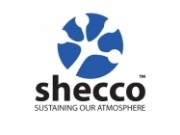During his ATMOsphere America 2014 presentation, Mike Weisser from SandenVendo America, emphasised the significant market opportunity for small footprint CO2 installations with respect to convenience store vending machines and highlighted that energy efficiency as well as system reliability will be the key drivers of the market uptake.
Mike Weisser, Vice President of Marketing and Sales at SandenVendo America, gave a presentation during the commercial refrigeration technology session at the ATMOsphere America 2014 event, which took place 18-19 June in San Francisco, US. Weisser talked about the potential of CO2 technology for convenience store vending machines, discussed SandenVendo’s findings in terms of CO2 system reliability in this segment and presented data on energy efficiency.15,000+ new or remodeled convenience stores per year in N. America
According to Weisser, there are currently 150,000 convenience stores already operating in North America while 5,000-7,000 new convenience stores are opening every year. With a store remodeling approximately every 15 years, Weisser estimates that the annual overall market potential for convenience stores in North America is approximately 15,000 – 17,000 stores. Therefore, the convenience stores market represents a substantial opportunity for small footprint CO2 refrigeration systems, i.e. vending machines.
Energy efficiency and system reliability to boost market share of CO2 vending machines in the US
Weisser estimates that there are around 6 million vending machines in the US. Each one of these machines represents an essential tool in the marketing and sales campaign of the end users that employ them. When one breaks the end user is prevented from selling their products, which can have a serious impact on the revenues of small business owners, such as those of 7-Eleven stores. Therefore, safeguarding system reliability of CO2 applications as well as providing adequate maintenance and servicing training are key for the uptake of CO2 technology in this segment.
In terms of system performance, Weisser said that SandenVendo has had excellent results from the field trials and that CO2 refrigeration units have proven to be resistant since they do not break down. Results are interconnected with customers’ request for robust and high quality components. SandenVendo has so far provided Dr Pepper Snapple with 36 units and The Coca-Cola Company with 30 units while the latter already ordered 432 more units in June 2014.
Finally, Weisser, as well as Steven Cousins from The Coca Cola Company, pointed out that according to tests run by DoE and Energy Star laboratories, CO2 systems are even more energy efficient than R134a systems.
About SANDEN
World specialist of hot and refrigerating technologies, the Japanese group SANDEN is recognised as one of the main actors in the different areas of thermodynamics application. SANDEN develops and manufactures complete systems of automotive air conditioning, beverage dispensers, refrigerated showcases and heating equipment. The group’s worldwide technical centers currently lead several programs on innovative CO2 applications.
SandenVendo America, a subsidiary of the SANDEN group, is a leading producer and distributor of electronic, high-capacity, chilled beverage machines striving to synthesise modern design with technology in the vending segment.
View article:
http://www.r744.com/articles/vending_machines_market_represents_huge_potential_for_co_sub_2_sub_technology
